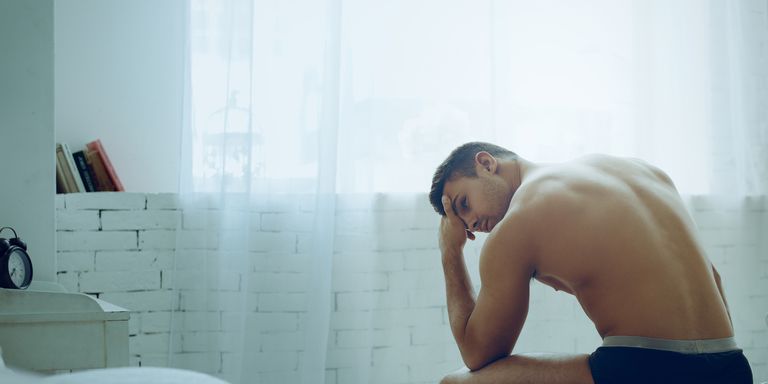If you wake up every morning drenched in sweat, you’ve probably frantically Googled “what causes night sweats” at one point or another. But the truth is, there is no one cause. You’ll probably have to do some sleuthing to figure out what’s prompting your perspiration.
Night sweats are fairly common: In one study published in Annals of Family Medicine, about one-third of primary care patients reported night sweats during the past month. But most sufferers of night sweats never report the symptom to their doctor, says study author James Mold, M.D., a professor of family medicine at the University of Oklahoma.
So what are the most common causes? We’ve rounded up just a few of them.
What makes some guys prone to night sweats?
Your body uses sweat to reduce your core temperature when it spikes above a threshold called the thermoneutral zone, research suggests. Lots of things can push your body temp into this zone, from use of heavy blankets to inflammatory processes inside your body when you have an infection or disease.
Several conditions can impact your sympathetic nervous system, your sweat glands, or other factors that influence your body’s ability to regulate its temperature. It’s also possible that people who work out may be conditioned to sweat at lower temperatures than expected, according to a study review by Mold and his colleagues.
What causes night sweats?
In a literature review published in the Journal of the American Board of Family Medicine, Dr. Mold and his colleagues revealed that several factors increase the likelihood of night sweats, including panic attacks, sleep problems, fever, numbness in hands and feet, anxiety and stress, and trouble breathing at night.
Night sweats may also be a side effect of medication, including selective serotonin reuptake inhibitors (SSRIs), commonly prescribed for depression. “Though causation has neither been proven nor disproven with certainty, it seems likely that SSRIs are a cause,” says Mold.
In a handful of cases, night sweats could indicate a serious problem. Mold’s study review suggests that they can be a symptom of autoimmune diseases, heart problems, or sleep apnea, which can cause you to momentarily stop breathing while you sleep.
While these cases are fairly rare, if you wake up in a pool of sweat almost every night, or if your alarm sounds and you’re soaked through your pajamas, you should see your doctor, says Mold. He also suggests monitoring your body temperature twice a day for a week to detect any fevers, and keeping a record of other symptoms to bring to your doc.
Ultimately, the best strategy to reduce night sweats is to treat whatever underlying condition is causing them. In the case of SSRI-induced night sweats, some people have seen improvement by adding medications called alpha-adrenergic blockers, research shows.
You should also avoid using heavy blankets or bedding, and eating spicy foods before bed.
Source: Read Full Article
